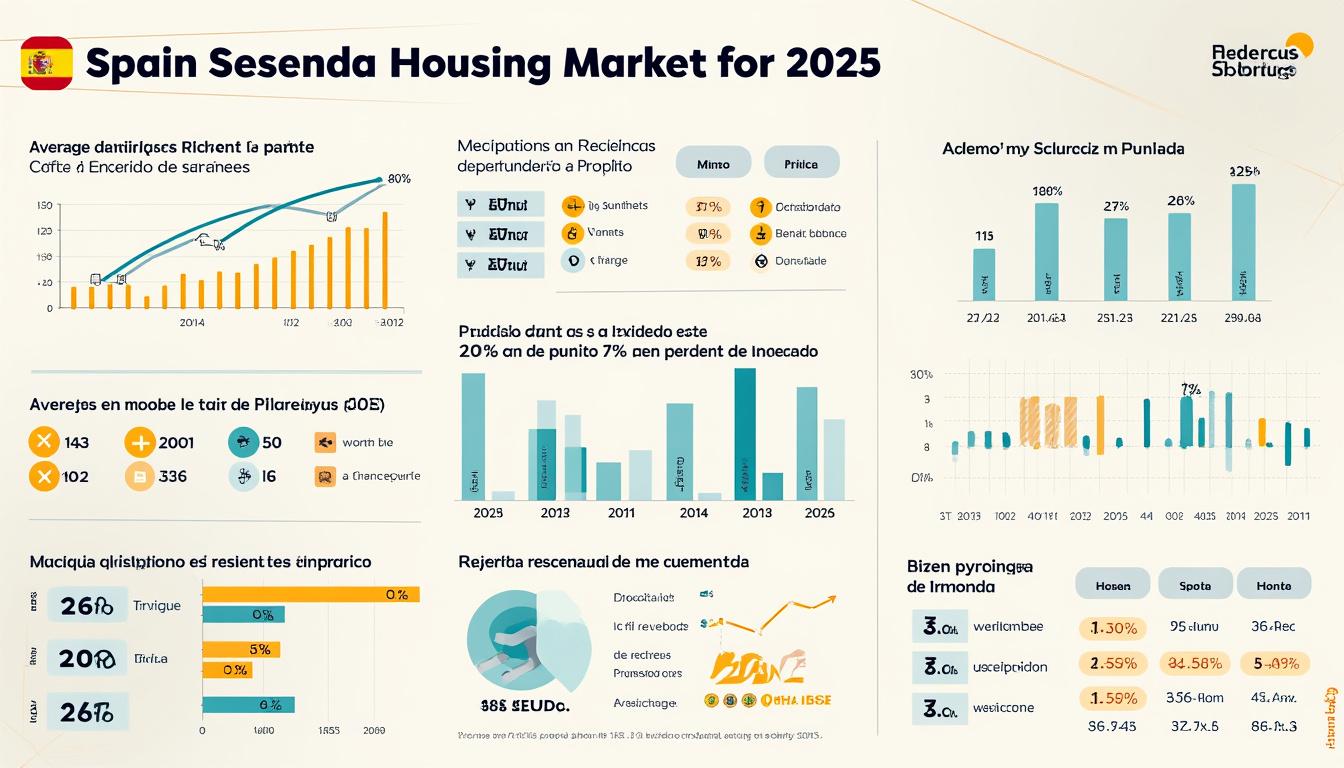The Spanish government has recently asserted that the housing market should not be viewed as a “free for all.” This declaration follows stringent new regulations governing short-term rentals, particularly targeting platforms like Airbnb, which have sparked significant controversy and concern across the nation. With Madrid and Barcelona—two of Spain’s most populous cities—grappling with a severe housing affordability crisis, the government’s actions reflect a broader commitment to regulating the housing market and safeguarding residents’ rights.
Understanding Spain’s Housing Crisis and Short-Term Rentals
The surge in popularity of short-term rental platforms such as Airbnb, Vrbo, Booking.com, and Expedia has transformed the landscape of international tourism in Spain. In 2024, the country welcomed a record 94 million international visitors, making it one of the most visited nations globally. However, this influx of tourists has contributed directly to the rising housing costs that have eroded the affordability of homes in urban areas. Cities like Madrid and Barcelona are particularly affected, with a significant portion of housing being converted into tourist accommodations or owned by non-residents.

A recent Bank of Spain report highlighted that the country is grappling with a shortfall of approximately 450,000 homes, exacerbating the plight of residents seeking affordable housing. In tourist hotspots such as the Canary and Balearic Islands, nearly half of the housing inventory consists of properties designated for tourism. This trend has led to growing frustration among locals, manifesting in widespread protests and demands for governmental intervention. Signs displayed at these protests, such as “Get Airbnb out of our neighborhoods,” underscore the urgent need for regulatory responses.
- Steep rise in rental costs due to demand from short-term rentals.
- McKinsey’s research shows that traditional rental markets are being disrupted.
- Local sentiments against short-term rentals continue to grow.
The Government’s Response: Regulations and Reforms
In January 2025, the Spanish government initiated a crackdown on Airbnb, ordering the removal of nearly 66,000 holiday rentals that reportedly violated local regulations, including failure to display license numbers or inaccurately listing properties. The government’s Consumer Rights Minister, Pablo Bustinduy, indicated that there is a clear correlation between the expansion of short-term rentals and increasing rents, emphasizing that regulations must hold multinational corporations accountable.
This move is part of a broader strategy unveiling a set of twelve unprecedented measures designed to tackle the housing crisis. These regulations aim to strike a balance between the constitutional rights of Spanish citizens and the needs of the tourism industry. While acknowledging the vital role tourism plays in the economy, Bustinduy asserted that it cannot jeopardize the housing rights of local residents.
| Measure | Description | Expected Impact |
|---|---|---|
| Removal of illegal listings | A ban on unregistered short-term rentals | Reduce pressure on rental market |
| Licensing requirements | Mandatory registration of all short-term rental units | Increase accountability and transparency |
| Housing Tax Reforms | Increased taxes on non-resident buyers | Discourage investment in short-term rentals |
Airbnb’s response to these regulations was to argue that it connects property owners with renters without oversight obligations, even as it continues to require hosts to comply with local laws. The company is appealing the government’s order to remove the listings, arguing that such measures could potentially discourage tourism and damage local economies.
Identifying Challenges and Prospective Solutions
While the Spanish government’s approach reflects its commitment to addressing the housing crisis, the effectiveness of these regulations remains to be seen. One key challenge is balancing the needs of tourists with those of local residents seeking affordable housing. Airbnb, along with similar platforms like HomeAway, FlipKey, Tripadvisor Rentals, and Vacasa, has become integral to the tourism ecosystem in Spain. The future of the tourism sector may depend on how swiftly and efficiently the government adapts these regulations.

Moving forward, several measures could help ease tensions surrounding the housing crisis while maintaining a vibrant tourism industry:
- Implementing tiered licensing based on the size and location of rental properties to manage the number of available short-term rentals.
- Encouraging property owners to consider long-term rentals by providing tax incentives.
- Facilitating dialogue between local communities, government officials, and short-term rental platforms to collaboratively develop sustainable tourism policies.
Regions like Barcelona are already taking steps to ensure the long-term viability of affordable housing. The city has proposed shutting down all 10,000 licensed short-term rentals by 2028 to preserve housing stock for residents. As cities across Spain implement similar strategies, a successful outcome will rely on rigorous enforcement of regulations combined with community engagement.
The Role of Local Governments
Local governments will play a crucial role in shaping the housing landscape through enforcement of regulations and creating policies that promote responsible tourism. For instance, the city officials of Madrid and Barcelona must ensure that the new measures do not inadvertently harm local economies or tourism. Thus far, regional governments have displayed varying levels of commitment to housing reform.
| City | Short-Term Rental Policy | Projected Impact |
|---|---|---|
| Madrid | Regulating licenses for short-term rentals | Control over housing supply |
| Barcelona | Phasing out existing rentals | Increase housing availability for locals |
| Valencia | Encouraging long-term leases | Stabilizing rental prices |
Local administrations must also work closely with platforms like Airbnb and OYO Rooms in order to adapt their business models within a legally compliant framework. A collaborative approach encourages responsible tourism while prioritizing local rights.
The Future of Tourist Accommodations in Spain
As Spain moves forward in 2025, the interplay between the housing market and short-term rentals will be a critical issue to monitor. The Spanish government has adopted an assertive stance to regulate the housing sector, asserting that the market cannot operate as a “free for all.” The framework emerging from these regulations will undoubtedly shape the future of tourist accommodations in the country, influencing choices made by investors and municipalities alike.

Looking ahead, it’s important to ask whether these regulations will indeed succeed in mitigating the housing crisis without undermining the tourism sector. While many advocate for a tighter grip on short-term rentals, potential repercussions must be examined. Local economies depend heavily on tourism, suggesting a delicate balancing act between regulation and free enterprise.
- Monitoring metrics on rental prices across key cities.
- Analysing data on tourism impacts following regulation enforcement.
- Engaging communities to gauge sentiment and feedback on new policies.
As pressure mounts from residents concerned about housing affordability, the challenges presented by short-term rentals will continue to evolve. In this landscape, a collaborative effort involving various stakeholders—including property owners, local governments, and rental platforms—will be essential in crafting sustainable solutions.
Global Perspectives and Comparative Insights
Spain’s legislative reforms echo similar trends seen in other parts of the world, as cities grapple with the ramifications of short-term rentals. Places like Paris and New York City have enacted measures aimed at regulating services like Airbnb, highlighting a global recognition of the challenge posed by the interplay of tourism and local housing markets. Emerging legislative frameworks in these cities offer valuable insights for Spain as it navigates its own regulatory landscape.
| City | Policy Overview | Lessons Learned |
|---|---|---|
| Paris | Strict limits on rental days | Preserved residential stock |
| New York City | Comprehensive rental registry | Increased oversight and accountability |
| Barcelona | Gradual phase-out of short-term rentals | Highlighting sustainable tourism |
Sustaining a thriving tourist economy while ensuring housing access for residents remains a key challenge. Policymakers in Spain could benefit from studying these examples and advocating for solutions that reconcile the interests of homeowners and investors with the broader societal imperative of affordable housing.
